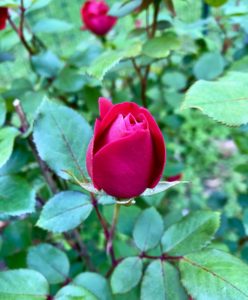
– Photo by Jan Ketchel
After Jeanne Marie Ketchel left her life, in a human body, she was amazed to discover that she was still very much a part of this world, though in a much more subtle body than the physical body she had recently shed. Following a period of rejuvenation and orientation she chose a task that was to become her new life mission.
More precisely, she describes this afterlife choice process as, “It will be of your choosing, but not of your choosing. It will be granted because it is exactly where you need to go, but it will also be where you fit perfectly.” (The Book of Us, p. 165)
No outside judge decides where we need to go, we are the ultimate judge of our lives.
“Where you need to go” is how I define karma. The underlying law of nature, both physical and spiritual, is growth. Spiritual growth progresses through lighter and lighter stages of being. We shed the denseness of physical matter upon physical death and enter our lighter energy body soul-state.
However, an individual who remains attached to their worldly possessions and physical proclivities upon death will, of necessity, enter a bardo environment that fits this state of evolution. The Buddhists define bardos as alternative worlds that reflect a soul’s state of spiritual accomplishments, high or low, offering what is necessary for continued growth, for every soul is destined to grow and evolve at their own pace.
Thus, continued life would be in a bardo of one’s choosing and yet not; it would be the only fitting place in which to evolve, hence, would be a natural next step. Souls remain in bardo states until they are ready to move on, meaning until they have grown or progressed enough to shed their attachment to the coveted activities of physical life or have completed the necessary expiation resulting from them.
The significant point here is that we are in full control of where we land based upon the choices we make and how far we spiritually evolve, in whatever world we are in. Upon changing worlds, at death, we can only go where we have prepared ourselves to go.
Karma is not punitive, it is objective. Though we might covet a highly evolved spiritual existence, we will only manifest it when we have completed the prerequisites for such an existence. Death does not automatically result in spiritual advancement, unless we have consciously worked toward it during our lifetime. Alternatively, though we may in fact be spiritually advanced during our lifetime, we may be placed in a remedial bardo to complete the necessary requirements for even greater ascension.
The same principle governs the life we are currently in: we can only advance in our careers and relationships to the extent that we have learned and prepared ourselves to advance into deeper fulfillment.
We are the ultimate judge of our lives, as we place ourselves where we need to go based on the choices we have made and the consequences of those choices. Judgment is based on full transparency—the truth. We are free to ignore the truth, but in that case we land ourselves in the bardo best fitted to allow us to accept the truth that we avoid, and to grow beyond it.
Our truest judge is the voice of our conscience, which is located in the heart center. This is the heart not of sentimentality nor romance but the heart of our morality, our deepest knowing of what is right. This voice of the heart is to be distinguished from the voice of the aberrant inner critic, the product of the conjuring mind’s incessant storytelling.
If we quiet our mind and ask our heart to speak the truth, it will calmly reveal it—no drama, just the plain truth. The true judge—the voice of heart centered conscience—will always know and choose rightly where we must go next.
If we align our decisions and actions with the truth that we are shown, we will advance as spiritually enlightened beings.
From the heart,
Chuck
